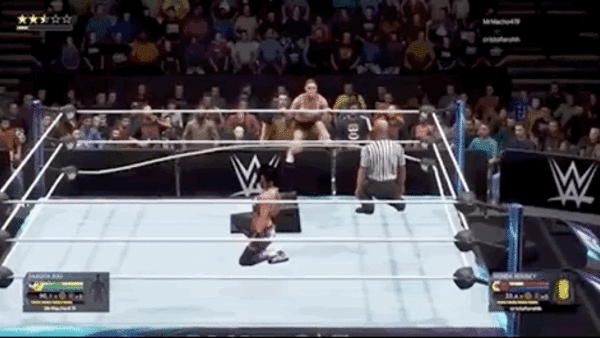Gamers and Testers - Episode 4

Hello there! This is the fourth post of my “Gamers and Testers” series. In these posts I ask a guest a series of usual (and unusual) questions about their experience of being involved with software testing in the videogames industry.
My guest for this post is Paul Farrell, the Automation Test Lead over at Gear4Music. I was fortunate to meet Paul for the first time at POST/CON 2019 (you can watch the talk he gave there on Youtube), and to my amazement, he had worked in the games industry. Paul has had the opportunity to work with THQ and Sony Computer Entertainment Europe (PlayStation).
He acted as a Functionality Tester for many PlayStation titles, primarily the LittleBigPlanet franchise.
1. I remember fondly playing certain games, and always being at awe with all the craft that went into them. What is THE game that, through the craftsmanship put into it, made you consider at one point joining the games industry?
I don’t think there was a specific game I played that made me go “I want to work in the games industry”. Gaming has been a part of my life since I got a Sega Mega Drive when I was 4 or 5 years old.
I did dabble with making games when I was a teenager using RPG Maker 2000 and 2003. But the games I tried to make were incredibly generic and cringe-worthy. I remember getting really frustrated because I didn’t understand basic programming concepts that were used in the engine such as, variables and conditions.
I can also pinpoint a specific scene in gaming that made me think “This is more than a game, this is a piece of art!” That would be a scene in Final Fantasy X for the Playstation 2, where the main character is leaving a village called Besaid to start his journey. There’s a point where the character runs across a bridge and there’s a waterfall in the background. I’m assuming this is a forgettable part of the game for others, but I remember being completely blown away by how good that game looked. I played the remaster of Final Fantasy X a few years ago and I smiled like a little kid once I reached that point in the game - incredible.
2. A lot of people hold the belief that Software Testing is mostly mindless button pushing. The belief is similar for our colleagues in the games industry “surely they spent all day just playing games”. How close would you say that is to the reality you faced and what preconceived ideas did you have before being a tester for videogames that didn’t match reality?
Nothing could be further from the truth! The majority of my experience in the Games Industry was testing Downloadable Content (DLC). If the DLC under test was a new costume for a character, there were many functional and ownership test cases that had to be executed. Now, all of these test cases needed to be executed on EVERY game region (US, Europe and Japan) and EVERY release (PS3 version, PS4 version, digital versions, Game of the Year Edition etc.) Some aspects of testing can be very repetitive and you end up going on auto-pilot. Normally, these repetitive tests(checks) are great candidates for automation.
3. Some people get to a point after a long day in front of “the screen” where they can’t enjoy a game later at home. Were you still able to enjoy videogames during your “tenure” with PlayStation, and afterwards after embracing new challenges outside of the games industy?
Good question! Early in my career, it was hard to shake that testing mindset when playing games outside of work. I’d try and do unconventional things to ‘break’ the game instead of actually enjoying it… I even remember I bought several of the games I had worked on just to gain the trophies for my PSN profile. One of the other testers messaged me whilst I was playing like “Dude…what are you doing!?” But I do have a greater appreciation for the development life cycle for games. If a game is delayed, don’t be angry at the Devs - you want to have the best playing experience possible. Trust me, the Devs don’t want to have their name/studio tied to a badly received game.
4. What was one thing that you liked the most and one thing that you didn’t like about your experience in the games industry as a Tester?
I honestly don’t have any awful stories from my time in the games industry. I was fortunate enough to not have to deal with “crunch” and I never had to sleep under my desk! Sure, I did late-night overtime and weekend shifts, but that was completely voluntary. Plus I got a free Domino’s Pizza for every weekend shift I took part in!
Easily, the best thing about working in the games industry would be the other people that work there. There are some incredibly dedicated and talented people in that field. There are some funny characters too!
5. What was it like to transition industries, while still staying invested in the software testing craft? What major differences did you spot?
Terrifying! I didn’t want to get a “real job”. I thought that the “real world” would be incredibly boring and I’d feel like an outcast in an office full of “normal people”, bear in mind I had super long hair and piercings back then! Those thoughts were quickly squashed as I had many nerdy conversations about Final Fantasy with the CTO of my first “real job”, who also used to have long hair.
The QA team at Gear4music is awesome too. Every tester on the team is into something that would be considered “nerdy”.
6. What small “gems” and lessons did you still carry with you from those times with PlayStation?
My time in the games industry has taught me to never get comfortable in a job, things can change at the drop of a hat. That statement rings even more true during this current pandemic, as many people have been let go from their jobs. Wherever I have worked, I always think “What skills can I gain here that will increase my ‘value’ on the job market?” Whether it be gaining experience in a new framework, language or testing tool. Since I’m an RPG-guy, let’s speak in those terms. You want to make sure you’ve gained enough experience in a role so you level up before moving onto the next Boss or dungeon, in this case - your next job/role :)
If you work somewhere that has no automated checks or has to support legacy software such as Internet Explorer 8 or Windows XP, treat this like you’re playing the game on Hard difficulty.
7. What recent changes in the industry do you think has affected games testers the most?
Well, I started working in the games industry during the PS3/Xbox 360 era. When you think about it, A LOT was introduced during this console era such as the concept of trophies/achievements, an online store, social media integration etc. But I think, by far, the biggest change for testers during this era would be the introduction of online capabilities. Sure, this has been commonplace for PC gamers for years and the Ps2, Dreamcast and the original Xbox dabbled in this area too. But introducing online capabilities as a major part of that console generation was a game-changer, no pun intended.
This introduced the double-edged sword that is ‘downloadable game patches.’ Games can now be released unfinished and someone can make a decision to add a fix for a bug or add a missing feature that should have been available on day one of that title’s release. A recent game that comes to my mind would be WWE 2k20 as that game was infamously released last year with major bugs. But with the introduction of patches, bug fixes and new content were added after its launch and are still being added today. This sucks for players with poor/no internet as they may never get the best experience the studio intended them to have. However, if that game was released on the original Playstation, the infamous bug that crashed WWE 2k20 after the 31st December 2019 wouldn’t have been fixed. The studio would have to fix the bug and send out a new copy of the game to each person that owns it.
I imagine the biggest change for game testers right now is Virtual Reality. To me, that’s a whole new world of testing!

8. What advice would you give to someone who wants to join the Testing craft in the videogames industry?
I apologise if this comes across a bit controversial, but I’d say be realistic with your expectations.
The games industry can be fragile, games get cancelled, contracts end and let’s be honest, you’re disposable as a games tester as people would love to “play games for a living”. If you lost your job at one studio, how many other studios are in your city? What’s the earning potential like for a Games Tester in your city/country? Can you see yourself buying a car, owning a house, raising a family on that wage? If a studio offers to pay for a testing training/education/certification - take up that offer! In my experience, and I’m only speaking about myself here, being a games tester acted as a great stepping stone in my career.
If you would have told me during my time as a games tester that I would leave the industry to work for a company that makes car park websites and I’d also be on stage in San Francisco giving a presentation to hundreds of people on software testing, I would have laughed and said: “There’s no way that will happen…”
Thank you Paul for the time you invested to answer these questions, and thank you, the reader, also for your time reading this post. I hope you’ve enjoyed it.
Feel free to reach out to me with comments, ideas and suggestions via any of my social media, or my email, which you can find in my Github account. Until next time, take care!